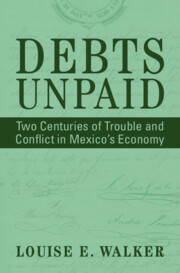5 - Asking for Help
Letters About Fairness and Dispossession, 1990s–2000s
Published online by Cambridge University Press: 04 November 2025
Summary
By the end of the twentieth century, the forms of economic information had multiplied. The trust problem that the early credit-rating agencies such as R. G. Dun had tried to address – how could creditors trust debtors? – had a new solution: the Credit Bureau, established in 1994. Those who languished on its infamous Black List were excluded from the credit economy and denied new loans. Debtors fared poorly within the new economic order, as it was more common to discipline delinquent debtors than to police predatory creditors. The power dynamics had been transformed, and many debtors faced dispossession through paperwork. Chapter 5 examines how people understood their debt troubles at the turn of the millennium while showing that the debtor–creditor relationship had become one of individual borrowers and institutional lenders. It examines what happened to people who did not pay their debts and analyses how citizens explained their situations, attributed blame, and asked for help. Mexican citizens with unpaid debt in the early twenty-first century were often left feeling vulnerable and isolated amidst the ups and downs of the global economy.
Keywords
Information
- Type
- Chapter
- Information
- Debts UnpaidTwo Centuries of Trouble and Conflict in Mexico's Economy, pp. 168 - 212Publisher: Cambridge University PressPrint publication year: 2025
